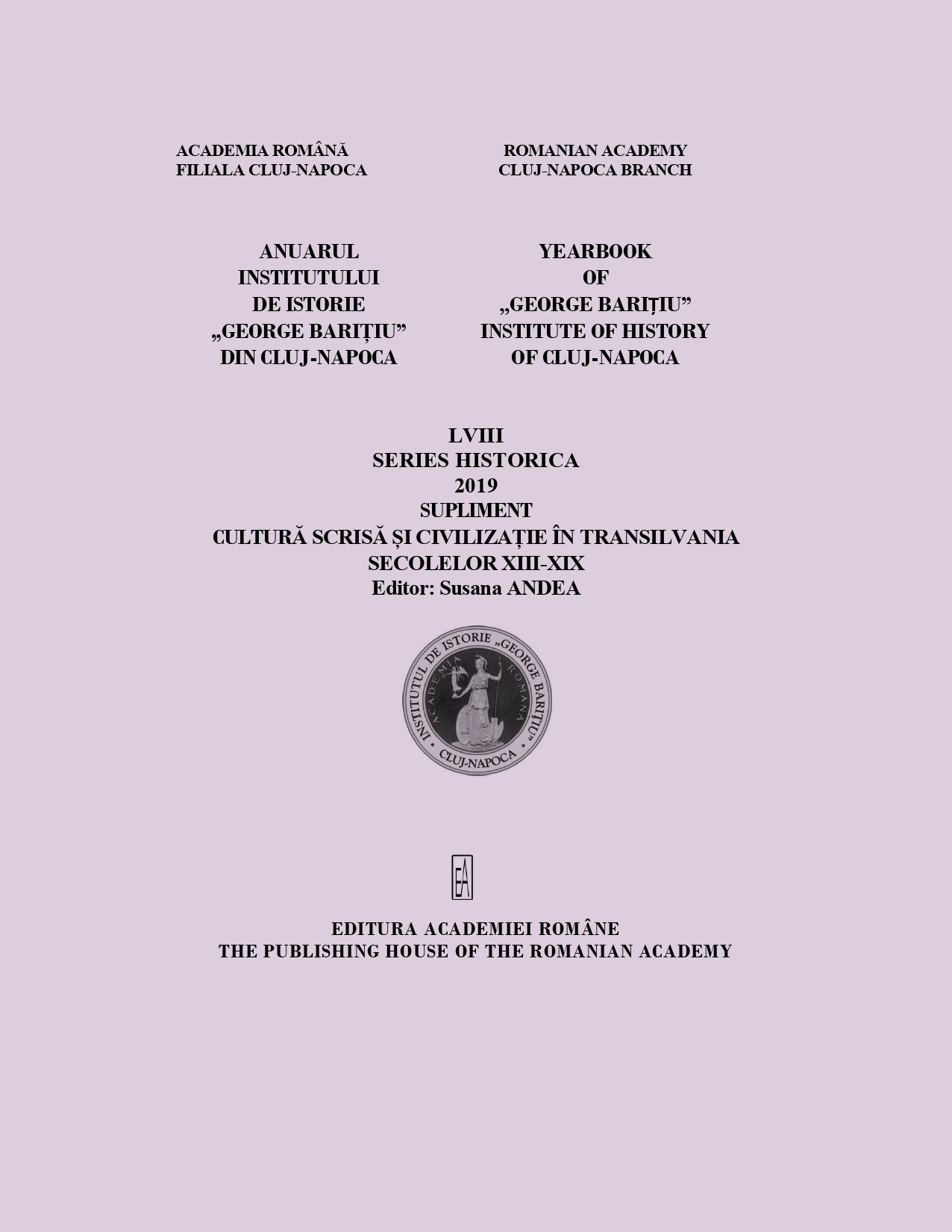Accepțiunile termenului de registrum în Transilvania secolului al XIV-lea
The Meaning of the Term Registrum in 14th Century Transylvania
Author(s): Mihai OlaruSubject(s): Local History / Microhistory, 13th to 14th Centuries
Published by: Editura Academiei Române
Keywords: register; list; place of authentication; outlaw; Transylvania;
Summary/Abstract: The study explores several meanings of the term registrum as rendered by the 14th century Transylvanian sources. In addition to the common meaning of register of documents, „registrum” also designated list of outlaws, list of fines, and a letter comprising a listing (of land boundaries, expenses and acts of an individual). In spite of the wide diversity in terms of size, issuer, content and purpose, all these documents had in common the idea of enumeration. Registrum, in all these meanings, is recorded in the 14th century, although the first meaning – register of documents – is recorded already from the second half of the 13th century at Oradea. The study concludes that the emergence and the increasing number of mentions of documents called „registrum” was influenced by the same complex factors which determined the development of written culture in medieval Hungary, especially during the Angevin period: the practical value of the written documents, the growing number of literate people, and the need of institutions and officials to have a more accurate record of their activities.
Journal: Anuarul Institutului de Istorie »George Bariţiu« - Series HISTORICA - Supliment
- Issue Year: LVIII/2019
- Issue No: LVIII/Sup
- Page Range: 57-66
- Page Count: 10
- Language: Romanian

